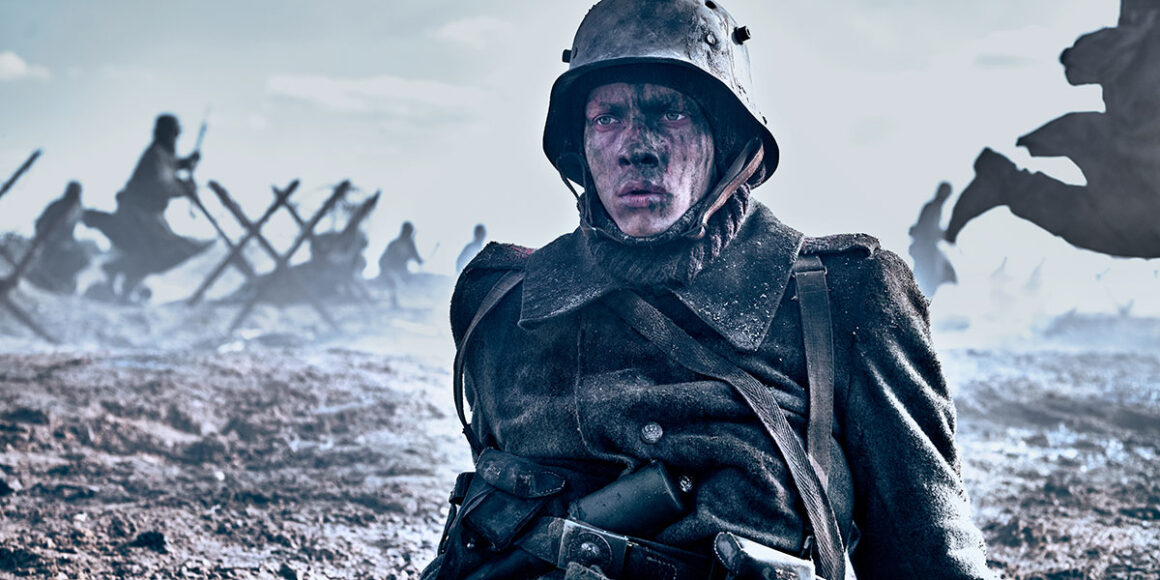By Thomas Carmichael
Against a backdrop of an imperialist war of aggression in Europe and growing geopolitical tensions between superpowers that threaten to spill over into conflict far deadlier and more destructive than any yet seen in the 21st century, the current period makes fertile ground for director Edward Berger’s fresh adaption of Erich Maria Remarque’s classic anti-war novel.
We open with naïve teenager Paul and his friends, newly graduated from school, whipped into a nationalistic fervour along with the rest of their schoolmates by their reactionary schoolmaster, practically tripping over themselves in their excited rush to enlist in the German army in early 1917. The harrowing opening sequence has already given us, the viewer, a taste of the horror they are unknowingly committing themselves to, as we see hundreds of bloodied and tattered uniforms stripped from the dead at the front, washed, mended and sent back along the line to be redistributed to the fresh lambs for the slaughter.
Finally arriving at the trenches, the first grim task assigned to the enthusiastic new recruits is the collection of dog tags from the bodies of their dead comrades. Shortly thereafter, they have their first encounter with enemy shelling and from this point onwards their lives resemble a downward spiral of blood, mud, trauma and death as they encounter machine gun and rifle fire, barbed wire, tanks, poison gas, flamethrowers and all the other myriad horrors of war, all in the name of hopefully claiming a few hundred yards of wasteland from the enemy.
Meanwhile two subplots, one following a German politician negotiating for peace with the French high command and the other a right-wing German general bemoaning what “social-democrats” are doing to his beloved Fatherland – as he wines and dines lavishly from the safety of an abandoned manor house behind the front lines – drive home the sheer and barbaric futility that the horrors of the main plot were being carried out in aid of.
Berger pulls absolutely no punches in this depiction of not only the unbridled horror of the trenches but also the criminality and barbarism of the ruling class in starting and propagating it. As our protagonists are ordered from one devastating battle to the next as if they were nothing but pawns on a chess board, we see the French generals refusing to agree to a cessation of hostilities to save lives on both sides while armistice negotiations are ongoing.
While the film does not give an explicitly socialist analysis of this being a war for capitalist domination of markets and the expansion of imperialist spheres of influence, in which the working classes of the belligerent nations were played off against each other for the benefit of their respective ruling classes; it does however leave no room for doubt that it was a conflict in which those at the bottom of society were sacrificed in vast numbers by those at the top in the name of nothing that was really worth fighting for at the end of the day.
All this is at no point clearer than at the very end of the film when the reactionary German general, after giving a speech with echoes of the ideas and rhetoric that would soon take root in German society and give way to the rise of fascism, sends his men on a futile, last-ditch attempt to claim one last line of trenches from the enemy, even though the armistice has been signed and the hostilities are due to end in a mere fifteen minutes. Making for a devastating and infuriating climatic moment for the audience to sit with, and ruminate that the lessons of that pointless, criminal chapter in human history are sadly no less relevant today than they were at that 11th hour.












